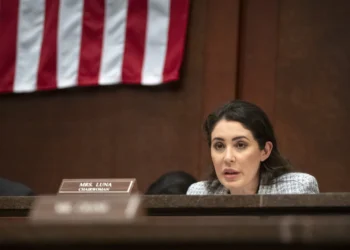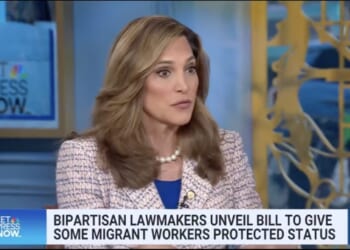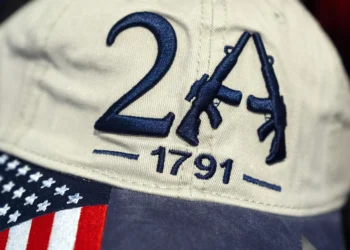Registered New Jersey voters pick a new governor in the Nov. 4 general election, but before that the state really needs to clean up its voter list.
After reviewing New Jersey’s statewide voter roll, a report from the Public Interest Legal Foundation (PILF) shows an “urgent need for improved list maintenance practices,” after identifying more than 32,000 registration issues, many of which could allow people to vote more than once.
PILF found 14,059 duplicate registrations, with voters registered in New Jersey and at least one other state at the same time. But PILF did not look at all 50 states, meaning there are certainly more to be found. PILF identified duplicate registrations in New Jersey and Florida (6,972 cases), New York (5,725), and Pennsylvania (925).
PILF also found 15,655 registrations using fictitious birth dates, which are sometimes used as placeholders — such as New Jersey’s most common placeholder date, 1800-01-01, that is, 225 years ago. The PILF report found 5,166 such birthdates in Essex County, 2,108 in Passaic County, and 1,928 in Middlesex County.
Of the 15,655 registrations with bad birth dates, 85 percent are marked as active voters, the report shows. But PILF says it is an easy fix. The organization took a random sample of 10 such registrations and compared the “New Jersey voter roll, Social Security records, and Experian reports,” and within minutes found the correct birthdates for all 10. PILF found that seven voter registrations were accurate after the proper birth date was added; Social Security records indicated that two registered voters had died more than 20 years ago; and one individual had seemingly relocated to St. Lucie County, Florida, and registered to vote there in 2017.
PILF also reportedly found 2,507 duplicate registrations at the same addresses. For example, they found cases where a single home had registrations for names like “Robert” and “Bob” “at precisely the same address with matching date of birth information.” Other apparent duplicate registrations at the same address had missing or false birth date data, suggesting these issues need to be investigated to make sure one person does not have more than one vote.
PILF sent a July 16 letter with its findings and a request for a meeting to Tahesha Way, who is both New Jersey’s lieutenant governor and secretary of state.
“New Jersey’s same-address duplication problem has improved since the Foundation last reviewed the voter roll and is down from more than 8,200 in 2022,” the letter said. “It appears the bulk of these duplicates are driven by placeholder/fictious dates of birth confusing any process to de-duplicate the rolls. As of this letter, 65 percent of the apparent duplicates contain placeholder dates of birth. It stands to reason that if New Jersey addresses its placeholder data problem, it will substantially aid in the de-duplication process as well.”
Way’s office did not respond to an email from The Federalist seeking a comment on the letter and asking whether the state intends to clean its voter rolls in time for the gubernatorial election.
Democrat Gov. Phil Murphy, who took office in 2018, is unable to seek reelection due to term limits, leaving the seat open for a campaign battle between Democrat U.S. Rep. Mikie Sherrill and Republican Jack Ciattarelli, a former assemblyman.
Beth Brelje is an elections correspondent for The Federalist. She is an award-winning investigative journalist with decades of media experience.















